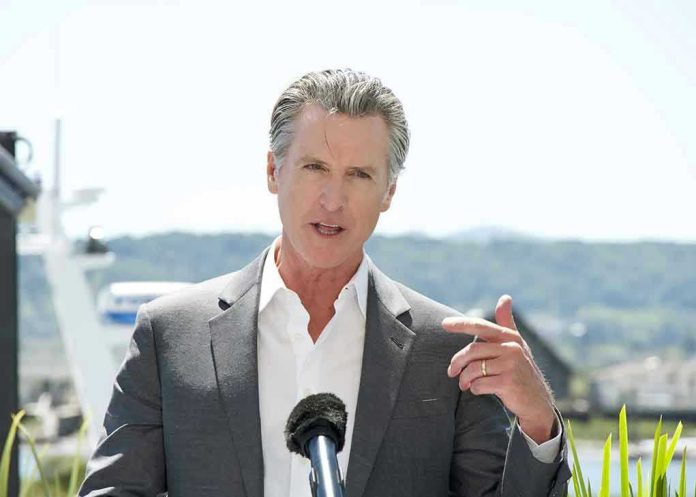
Gavin Newsom’s redistricting gamble could backfire, threatening the integrity of California’s independent redistricting process.
Story Overview
- Newsom’s Proposition 50 aims to counter Texas’s GOP redistricting by altering California’s districts.
- The move has sparked political and legal battles, raising concerns about undermining independent redistricting.
- Critics argue the measure could cost taxpayers $230 million for a special election.
- Public opinion is divided, but the measure continues to gain support ahead of the November 2025 vote.
Newsom’s Redistricting Push and Its Implications
California Governor Gavin Newsom has introduced Proposition 50, a ballot measure aimed at redrawing the state’s congressional districts. This initiative is a response to Texas’s recent GOP-favored redistricting. California’s move has sparked intense debate over its potential to destabilize the independent redistricting commission established in 2008 to eliminate partisan manipulation of electoral maps. Critics warn that this could set a precedent for similar actions nationwide.
Proposition 50 seeks to create Democrat-friendly districts as a countermeasure against Texas, where Republicans advanced a new congressional map earlier in 2025. Newsom’s legislative push has met with both support and opposition, reflecting the broader national conflict over election integrity and partisan gerrymandering. Legal challenges have already been filed, and the California Supreme Court has ruled against Republican attempts to block the measure.
Economic and Legal Challenges
The financial implications of Proposition 50 are significant, with an estimated $230 million needed for a special election. Public debates have centered on whether this expenditure is justified, especially given California’s existing fiscal challenges. Legal experts have expressed concerns that bypassing the independent commission could invite constitutional challenges, as it appears to undermine the nonpartisan framework intended to prevent gerrymandering.
Public polling indicates that support for Newsom’s redistricting initiative is growing, with 57% of voters in favor as of August 2025. This support reflects a divided electorate, with Democrats largely backing the measure as a necessary defense of fair representation and Republicans denouncing it as a power grab that betrays voter intent.
Potential Consequences and National Reactions
If successful, Proposition 50 could lead to Democrats gaining up to five additional congressional seats in 2026. However, the move risks eroding the credibility of California’s independent redistricting commission and could escalate partisan tensions. Nationally, figures such as former President Obama have supported the measure, further elevating its profile and influencing the ongoing debate about election laws and integrity.
Missouri Enters the Chat on Redistricting, As Gavin Newsom's War Blows Up in His Face https://t.co/5ziIASheo1
— Jouel (@Jouel50779032) August 21, 2025
As the November 2025 vote approaches, the ramifications of California’s redistricting efforts remain uncertain. This situation underscores the broader national struggle over control of Congress, with both parties deeply entrenched in their positions. The outcome could have lasting impacts on how states approach redistricting and balance partisan interests with democratic principles.
Sources:
Official California Governor’s Office







